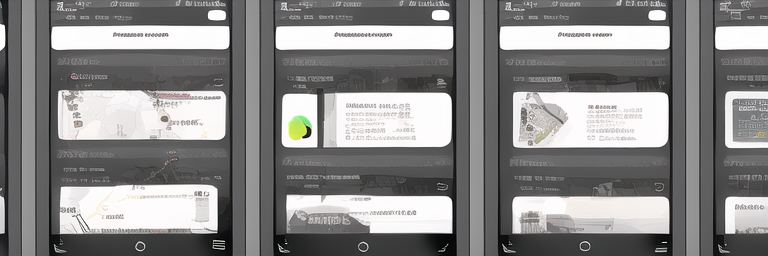Current Trends
Mobile applications have become increasingly popular in recent years, and the trends in mobile apps are constantly evolving.
One of the most prominent trends in mobile applications is the use of augmented reality (AR). AR allows users to interact with virtual objects in the real world, and it is becoming increasingly popular in mobile gaming, navigation, and marketing applications.
Another trend is the growth of the “internet of things” (IoT). IoT enables devices to interact with each other and with the user, and it is being used to create connected and automated systems that can provide a range of services such as home automation, connected health, and smart cities.
A third trend is the increasing use of artificial intelligence (AI). AI is being used to create applications that can understand and process natural language, as well as to create applications that can learn from user data and respond to user input. Finally, mobile applications are becoming more cloud–based, allowing users to access their applications from anywhere. This trend will continue to grow as more businesses move their data to the cloud.
Overall, mobile applications are becoming increasingly sophisticated, and these trends will continue to shape the way we interact with our mobile devices.
Staying Informed
Mobile application trends are important because they provide insight into the needs and interests of users. Mobile applications are becoming increasingly popular as more people rely on their mobile devices for daily communication and entertainment. As such, keeping up with mobile application trends is essential for staying ahead of the competition and creating applications that meet user needs.
Trends can also offer insight into the type of technology that is being used. By understanding the latest technologies, mobile application developers can create applications that capitalize on the cutting–edge features and capabilities that are available. This can help to ensure that users get a high–quality experience when using their applications.
Finally, staying up–to–date with mobile application trends can provide an advantage when it comes to marketing. Knowing which features and designs are popular can help to create effective marketing campaigns that target the right users and generate more downloads. This can be especially beneficial for startups and small businesses who are trying to gain a foothold in the mobile application market.
Top Trend | Augmented Reality
The emergence of augmented reality (AR) technology has led to a surge in mobile applications that integrate the technology. With the increasing popularity of AR and the rise of smartphones, the demand for applications that utilize AR technology is higher than ever.
There are a few trends dominating the AR mobile app development space. Firstly, more and more apps are being developed that offer interactive experiences. Examples of such apps include games, social media apps, educational apps, and shopping apps. These apps allow users to engage with content in a more immersive and realistic way, allowing them to interact with virtual objects as if they were real.
Secondly, there is a trend towards creating apps that are more context–aware. These apps are able to recognize and respond to their user‘s environment and provide a more personalized experience. For instance, some apps can detect the location of a user and recommend nearby stores, restaurants, or attractions.
Finally, AR mobile apps are becoming increasingly popular in the enterprise space. Companies are using AR apps to provide an enhanced customer experience, improve operational efficiency, and increase employee productivity. Examples of these kinds of apps include virtual training apps, remote work apps, and customer service apps.
Overall, mobile apps that incorporate AR technology are becoming increasingly popular and the trend is likely to continue in the future. With the growth of mobile technology and the increasing demand for immersive experiences, AR mobile apps are likely to become even more popular.
The Future
The future of mobile applications is bright as mobile technology continues to advance. As the demand for mobile applications grows, mobile app developers will be able to create more sophisticated, feature–rich apps that offer users an even better experience than before.
We can expect mobile applications to become more intelligent with the use of machine learning, artificial intelligence, and natural language processing. This will allow them to understand user needs and preferences better, leading to more personalized experiences.
Mobile applications will also become more interactive and immersive. Developers will be able to create apps that can respond to gestures, voice commands, facial expressions, and other forms of input. This will make it easier to interact with applications, making them more user friendly.
Voice–activated apps will become more popular as well. This will allow users to quickly and easily search for information, set reminders, and perform other tasks without having to type in information.
The use of augmented reality and virtual reality will also become more common in mobile applications. This will allow users to experience virtual environments, explore 3D objects, and more.
In the future, mobile applications will become even more secure and reliable. Developers will use advanced techniques such as encryption and biometrics to protect user data from being accessed by unauthorized individuals.
Overall, the future of mobile applications looks very promising. As technology continues to improve, mobile apps will become more feature–rich and provide users with an even better experience.

